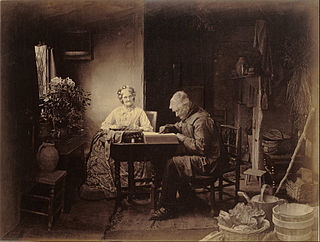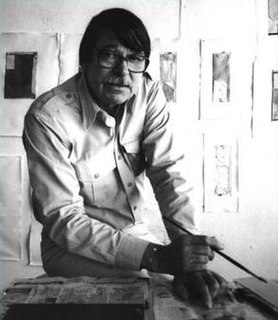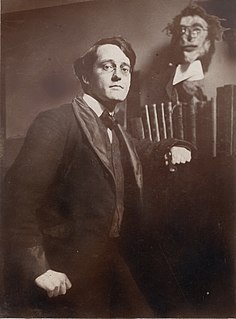A Quote by Patti Smith
The artist seeks contact with his intuitive sense of the gods, but in order to create his work, he cannot stay in this seductive and incorporeal realm. He must return to the material world in order to do his work. It's the artist's responsibility to balance mystical communication and the labor of creation.
Related Quotes
A life lived in chaos is an impossibility for the artist. No matter how unstructured may seem the painter's garret in Paris or the poet's pad in Greenwich Village, the artist must have some kind of order or he will proudce a very small body of work. To create a work of art, great or small, is work, hard work, and work requires discipline and order.
I cannot draw a human figure if I don't know the order of his bones, muscles or tendons. Same is that I cannot draw a human face if I don't know what's going on his mind and heart. In order to paint life one must understand not only anatomy, but what people feel and think about the world they live in. The painter who knows his own craft and nothing else will turn out to be a very superficial artist.
Clearly the hardest thing for the working artist is to create his own conception and follow it, unafraid of the strictures it imposes, however rigid these may be... I see it as the clearest evidence of genius when an artist follows his conception, his idea, his principle, so unswervingly that he has this truth of his constantly in his control, never letting go of it even for the sake of his own enjoyment of his work.
Too often in the past, we have thought of the artist as an idler and dilettante and of the lover of arts as somehow sissy and effete. We have done both an injustice. The life of the artist is, in relation to his work, stern and lonely. He has labored hard, often amid deprivation, to perfect his skill. He has turned aside from quick success in order to strip his vision of everything secondary or cheapening. His working life is marked by intense application and intense discipline.
The books of the great scientists are gathering dust on the shelves of learned libraries. And rightly so. The scientist addresses an infinitesimal audience of fellow composers. His message is not devoid of universality but its universality is disembodied and anonymous. While the artist's communication is linked forever with its original form, that of the scientist is modified, amplified, fused with the ideas and results of others and melts into the stream of knowledge and ideas which forms our culture. The scientist has in common with the artist only this: that he can find no better retreat from the world than his work and also no stronger link with the world than his work.




































